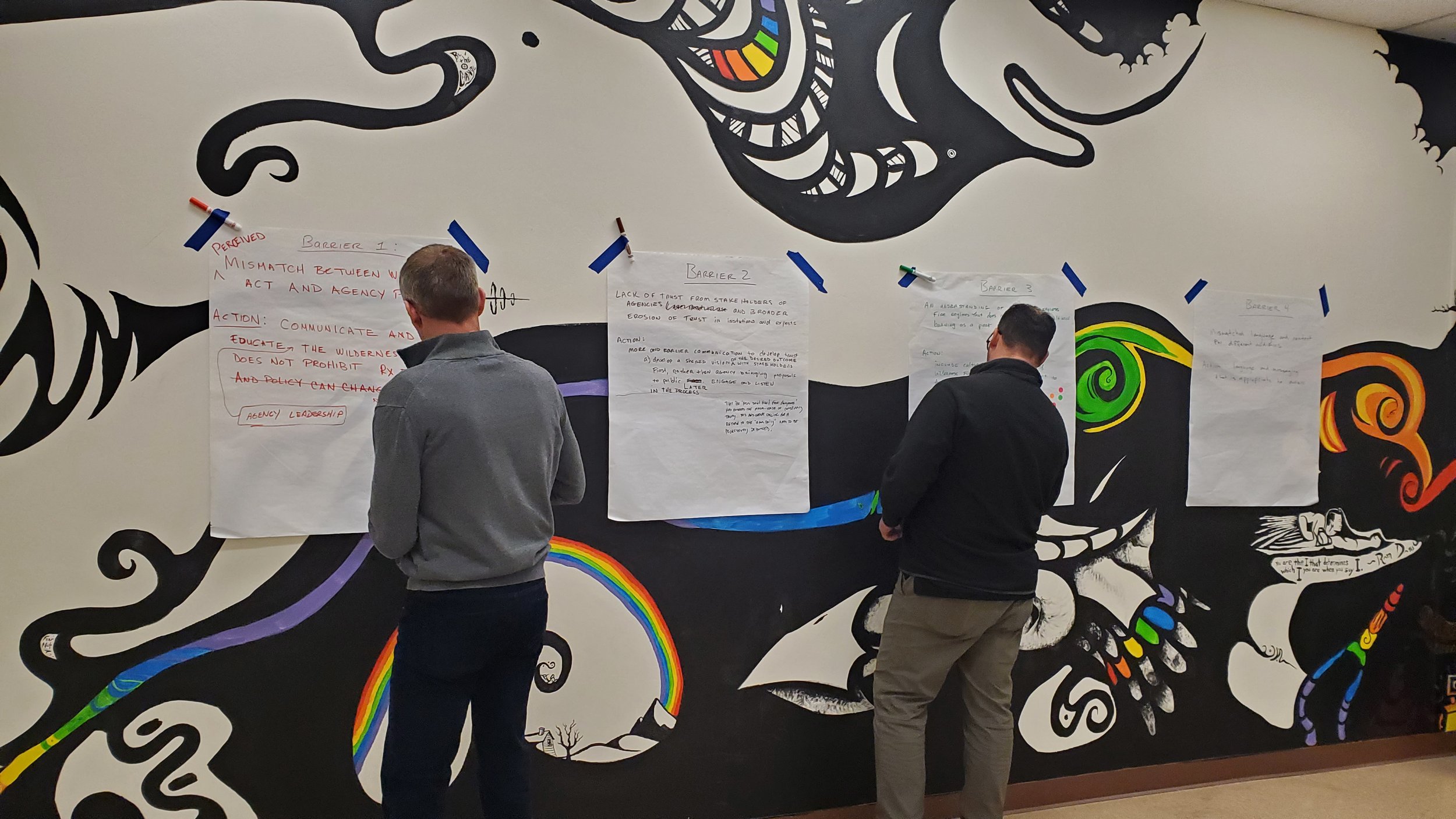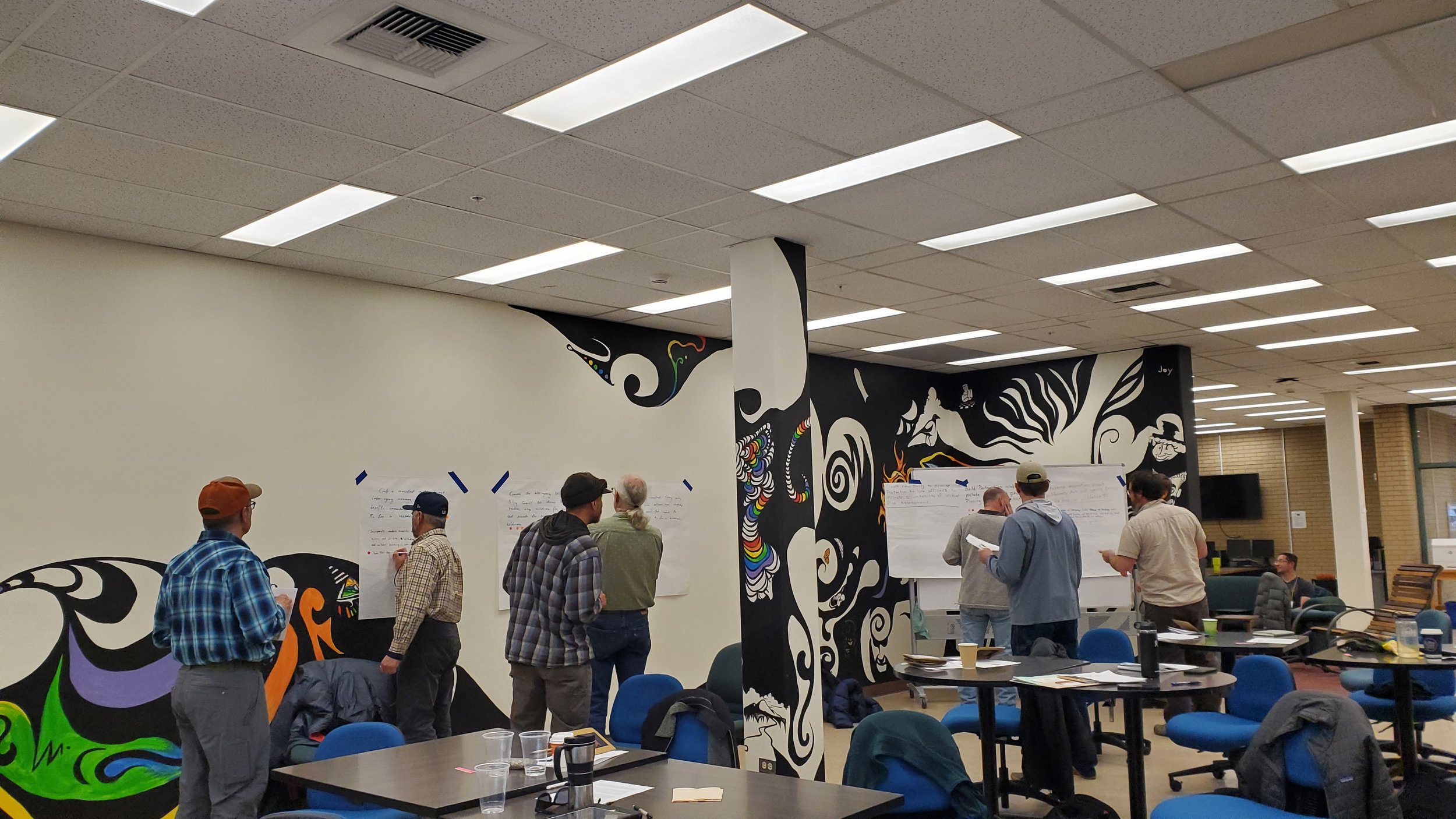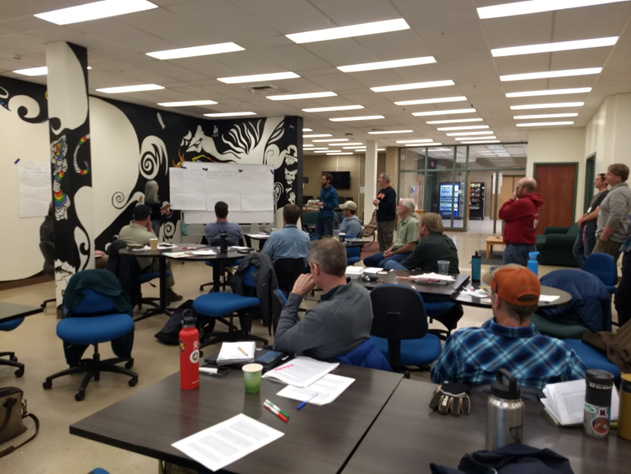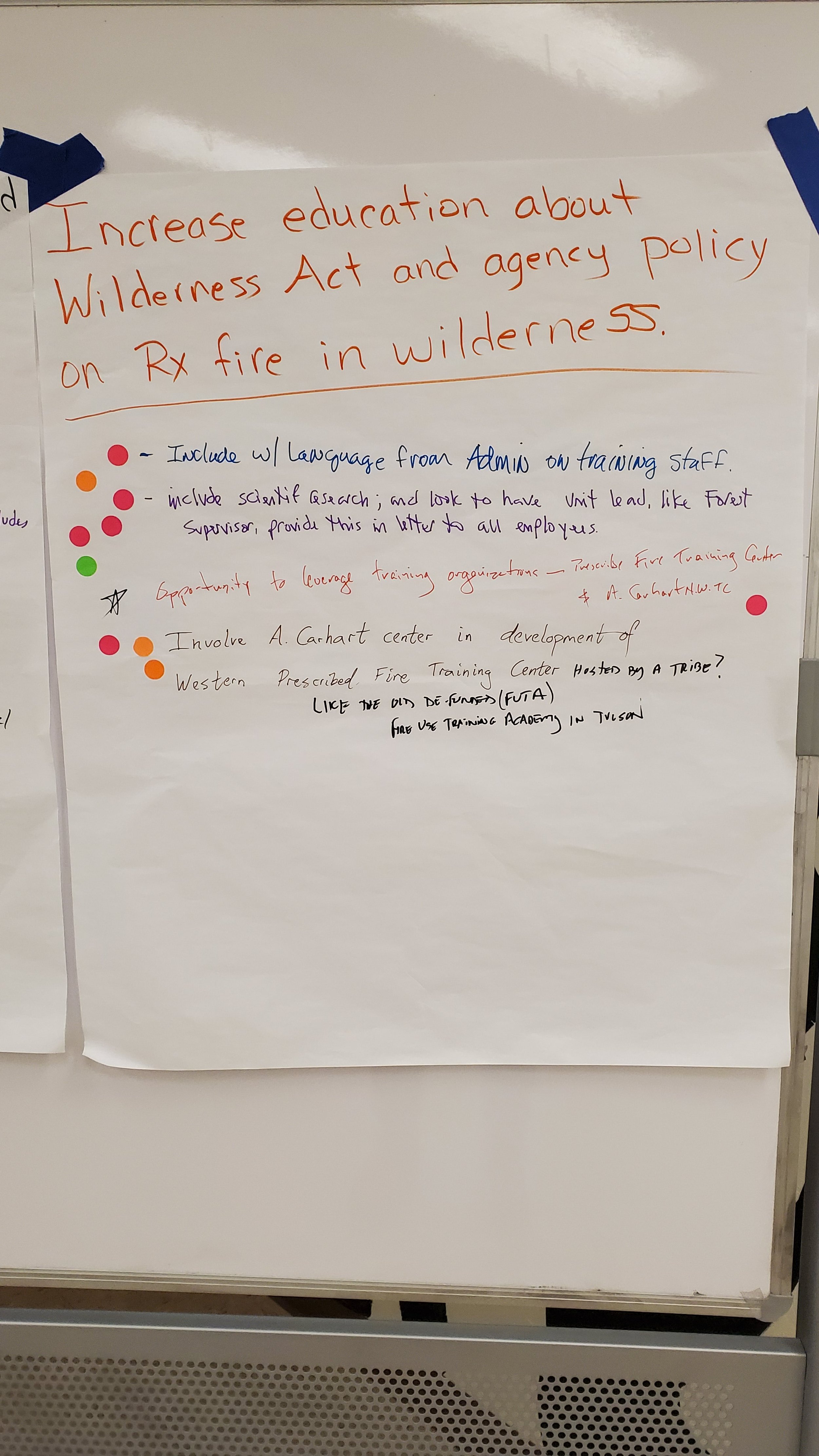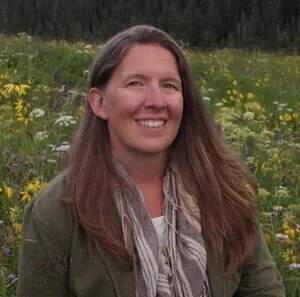WildRx: The Case for Prescribed Fire in Wilderness
The Center for Public Lands is collaborating with the Aldo Leopold Wilderness Research Institute on research about wilderness fire management, with a particular focus on prescribed fire in designated wilderness areas.
-
The Center for Public Lands in partnership with the Aldo Leopold Wilderness Research Institute is releasing a synthesis paper titled Prescribed Fire and U.S. Wilderness Areas: Barriers and Opportunities for Wilderness Fire Management in a Time of Change. The paper brings together research and the discussions of fire and wilderness experts from the Wilderness and Fire Workshop held in Gunnison, CO in December 2022.
Wilderness RX Synthesis Paper Click HERE.
-
Rocky Mountain Research Station
Prescribed Fire and Wilderness: Barriers and Opportunities in a Time of Change
CLICK HERE to access the final web version of the SYCU in five minutes.
-
Join us for land management-focused webinars. These sessions will be half presentation and half question and answer. All presenters are scientists at the Rocky Mountain Research Station.
The webinar is scheduled for March 13 – 10-11 am MT: Prescribed fire and wilderness: Barriers and opportunities in a time of change
Presenter: Sean Parks; registration for this webinar and others in our series is here.
In December 2022, the Center for Public Lands and the Aldo Leopold Wilderness Research Institute (ALWRI), hosted the Wilderness and Fire Management Workshop in Gunnison, Colorado. Workshop participants represented fire and wilderness managers from multiple agencies, Tribal members, conservation organizations, researchers, and graduate students. Each brought unique experiences and perspectives to a discussion about the future of wilderness and fire management. Research conducted by the Center for Public Lands regarding challenges and opportunities associated with prescribed fire in wilderness, along with case studies from around the country, provided a foundation for conversation and deliberation. Workshop participants, found prescribed burns as an opportunity to return balance to the forest ecosystem under more predictable and favorable conditions than those currently accompanying lightning strikes. As stated above the culmination of research and discussions leads to the release of Prescribed Fire In U.S Wilderness Areas Barriers and Opportunities for Wilderness Fire Management in a Time of Change.
Wilderness RX Synthesis Paper Click HERE.
Additional Details
-
In May and June 2022, a faculty and graduate student team at Western Colorado University developed a survey to collect information about existing wilderness fire management conditions. The research aimed to understand how different strategies and policies influence planning, decision-making, and implementation. More than 100 respondents who work in wilderness and/or fire as current or former agency and special interest group employees completed a survey, and 16 respondents from diverse organizations, regions, and professional backgrounds were interviewed.
In addition to preparing these research findings for publication, the data provided a basis for further discussion about the barriers that limit use of prescription fire as a management tool in wilderness, and the opportunities for implementing change. These ideas were explored at length during the Wilderness and Fire Management Workshop in December 2022.
-
The workshop was planned and facilitated by the Center for Public Lands, under its mission to develop creative responses to contemporary land management challenges by applying scientific knowledge in the context of the complex realities of planning, management, and policy development. The first part of the workshop focused on building common ground for discussion by studying research findings and exemplary case studies. Then, participants worked in small groups, each focused on a priority area, to identify real and perceived barriers that impede the use of prescribed fire in wilderness. The groups then developed priority actions to respond to the identified barriers. Through a series of work sessions, participants received feedback on the priority actions from the perspective of individuals living and working in diverse geographies, ecosystems, and organizations. The refined recommendations were presented to the whole group, who voted on the most urgent, impactful, feasible, and important actions for inclusion in the draft synthesis paper.
Workshop participants reviewed the white paper collectively and individually during the workshop and in subsequent weeks. In addition to voting for or against recommendations, they submitted editorial feedback for consideration in the synthesis paper.
-
Item description
-
Check out an Interactive story map showing different Wilderness areas of the United States, including Wilderness area, total acreages, largest wilderness, and smallest wilderness created by Clare Boerigter CLICK HERE.
Meet the WildRX Team
Dagny Signorelli
Dagny is a graduate student in the Master of Science in Ecology program at Western Colorado University. She graduated from the University of Nevada, Reno, in Environmental Science in 2014 and proceeded to work in air quality and wastewater management. She volunteers for environmental justice issues as the Environmental Justice Subcommittee Chair of the Social Justice and Engineering Initiative. She started her M.S. in Forest Ecology and Sustainable Management in Umeå, Sweden in 2020 and learned about boreal forest ecology and history. Due to COVID-19, Dagny transferred to Western to finish her degree. Now she is working with Dr. Coop on characterizing the historical fire regime by forest type through cross-dating fire-scarred trees in the Powderhorn Wilderness, located between Gunnison and Lake City, Colorado. She received a fellowship to work on the Wilderness Prescribed Fire project through the Center for Public Lands.
Contact: dagny.signorelli@western.edu Alyssa Worsham
Alyssa Worsham is a graduate of Western Colorado University’s Master of Environmental Management (MEM) program with an emphasis on Integrative and Public Land Management. She was one of two student fellows working on the Wilderness & Fire Management Project with the Center for Public Lands. Before graduate school, she received a B.S. in Environmental Science and GIS from the University of California-Los Angeles, and she worked in environmental consulting for several years in Southern California and Western Washington. Much of her work as an environmental planner was related to environmental compliance and documentation, including NEPA/SEPA/CEQA and permitting. Alyssa currently works for the USDA Forest Service as an Administrative Review & Appeals Specialist at the Rocky Mountain Regional Office (R2).
Contact: alyssa.worsham@western.eduDr. Jonathan Coop
Dr. Jonathan Coop is an ecologist whose teaching and research revolves around the changing landscapes of the western US. He hails from Los Alamos, New Mexico, where he vividly recalls the 1977 La Mesa fire, one of the first in a series of increasingly severe and extensive fires to burn in southwestern ponderosa pine forests. Watching the ecosystems of the Jemez Mountains unravel and re-ravel over the ensuing years grew his interests in how relationships between climate, topography, and disturbance regimes shape biotic communities. He received a BA in Biology from the University of California, Santa Cruz, spent many years doing wildlife research in the northern Rockies and teaching field study courses across the Americas, and has hiked the Continental Divide Trail. He completed a PhD in Botany at the University of Wisconsin Madison in 2005, in which he returned to the Jemez to study the forests and grasslands of the Valles Caldera National Preserve. As a postdoc he studied Rocky Mountain bristlecone pine for the USFS Rocky Mountain Research Station. He has been at Western since 2008. When not working he is often to be found with family somewhere out on a river, mountain, or trail.
Contact: jcoop@western.eduDr. Melanie Armstrong
Melanie Armstrong is an Associate Professor in the Haub School of Environment and Natural Resources and Director of the Ruckelshaus Institute at the University of Wyoming. Previously, she founded and directed the Center for Public Lands at Western Colorado University, bringing students, faculty, and stakeholders together to address the pressing issues facing public lands in this era of global environmental change. In her work she aims to integrate research and collaborative practice to enable creative, scientific and community-driven responses to land management challenges.
Contact: melanie.armstrong@uwyo.edu

